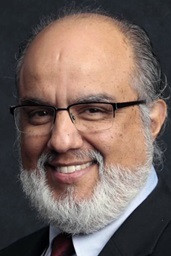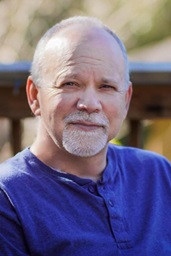Editor’s note: The Rev. Thomas E. Frank, an expert on United Methodist polity, is urging the Council of Bishops for the sake of church unity to stop church trials of elders accused of violating the denomination’s stance on homosexuality. Frank is a historian of Methodism and professor at Wake Forest University in Winston-Salem, N.C. He is the author of the frequently used textbook Polity, Practice, and the Mission of The United Methodist Church. He is also the son of the late Bishop Eugene Frank. His letter is below:
AN OPEN LETTER TO THE UNITED METHODIST COUNCIL OF BISHOPS
November 12, 2013
To our episcopal leaders:
I ask you, for the sake of the unity of the church, to stop the trials. We need to engage our differences through “Christian conversation” within our conferences and particularly within our orders of elders. Church trials are “an expedient of last resort” and are not the way forward.
The constitution of our church charges you as a Council with “general oversight and promotion of the temporal and spiritual interests of the entire Church.” The church over which you preside is deeply divided and these “interests” are now at stake. While you are also charged as a Council with “carrying into effect the rules, regulations, and responsibilities prescribed and enjoined by the General Conference,” clearly our church lacks consensus on our pastoral duties with gay and lesbian church members. This is no time to continue with church trials that only exacerbate our differences. If we are to find unity in our diversity, we must do so in conference and in our orders.
Your servant leadership of the church does not and cannot mean that you are simply servile to the actions of General Conference. The 2012 session in Tampa failed to acknowledge our lack of consensus and refused a legislative path forward. The Council of Bishops now must act, and can do so under its constitutional powers. The episcopacy is established in our constitution as a constitutive body alongside the General Conference and the Judicial Council. When you as a Council see the unity of the church at risk, you have a constitutional duty to act.
I am not asking you to change the church’s statements on homosexuality. Clearly that is not within the powers of the Council. I am asking you to acknowledge that a large number of faithful United Methodist ministers in good standing cannot in conscience restrict their pastoral duties to accord with these statements.
Nothing in the Book of Discipline requires that you refer complaints to counsel for the church and subsequent trial. You have discretion as the chief pastors of the church over the manner, purpose and conduct of any supervisory response and just resolution under “fair process.” You also have discretion to assemble the pastors under your appointment to address issues that divide us. A church trial court is only a miniature annual conference of thirteen peers in any case. The church is better served by bringing the whole conference and order into conversation.
Many pastors across our church view the performance of same-sex wedding ceremonies as a pastoral duty, particularly with longtime church members. Far from “flaunting” church law, as a recent press headline put it, they are being pastors to their members. At the moment we have the prospect of church trials for at least two different ordained elders who performed such ceremonies for their own beloved children. Really? We have come to the point of trying our pastors for acts, even within their own families, that exemplify the love and ministries of the church?
The continuation of church trials is a disgrace to our heritage. It is divisive, bringing interference from interest groups outside the annual conference and introducing the language of “prosecution,” “defense team,” “conviction,” “judge,” and “jury” to our church as if we were all players in “Law and Order.” We are not considering criminal acts; we are deliberating about pastoral judgment. Trials are an exorbitant expense for a process that does no good for our church. Of course, any member of our church has the constitutional right to request a trial. But at this moment, I do not see other circumstances under which our church should be conducting them.
Our church is desperately in need of open conversation on these pastoral issues. We are retreating into our various camps and avoiding the hard work of engaging each other’s views. You as a Council and as individual bishops can set a new tone in which we can speak together openly and honestly, without fear of retribution. As Wesley’s Large Minutes began, “It is desired, that all things be considered as in the immediate presence of God; that every person speak freely whatever is in his heart.” This is the collective spirit in which the Holy Spirit is welcomed, and the conversation flourishes. Please lead us in that spirit.
Thank you for your consideration and for your faithful leadership of our church.
Thomas Edward Frank
University Professor
Wake Forest University
Like what you're reading? Support the ministry of UM News! Your support ensures the latest denominational news, dynamic stories and informative articles will continue to connect our global community. Make a tax-deductible donation at ResourceUMC.org/GiveUMCom.



